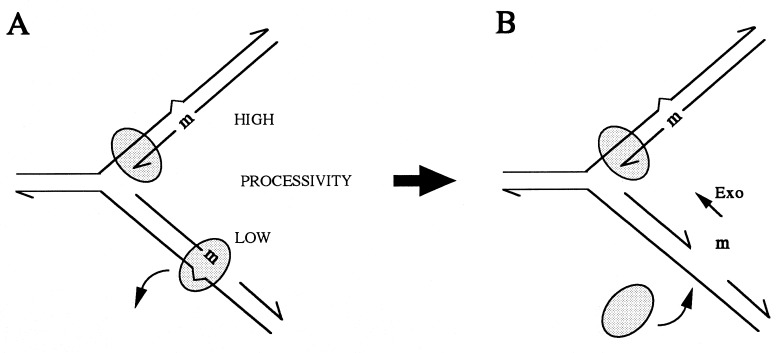Figure 1.
Strandedness, processivity, and fidelity in DNA replication. Leading strand synthesis is probably more processive than lagging strand synthesis. Therefore, according to Fijalkowska et al. (3), replication errors (m) in the leading strand are more readily fixed by the extension of DNA synthesis. Replication errors in the lagging strand are more likely to cause dissociation of the replication complex (A), leaving the mismatched 3′ terminus free for excision by some cellular exonuclease (free m), allowing the replicase to resume synthesis (B). Mutation (m) is a misincorporated nucleotide; the shaded elipsoid is the DNA replication complex.

